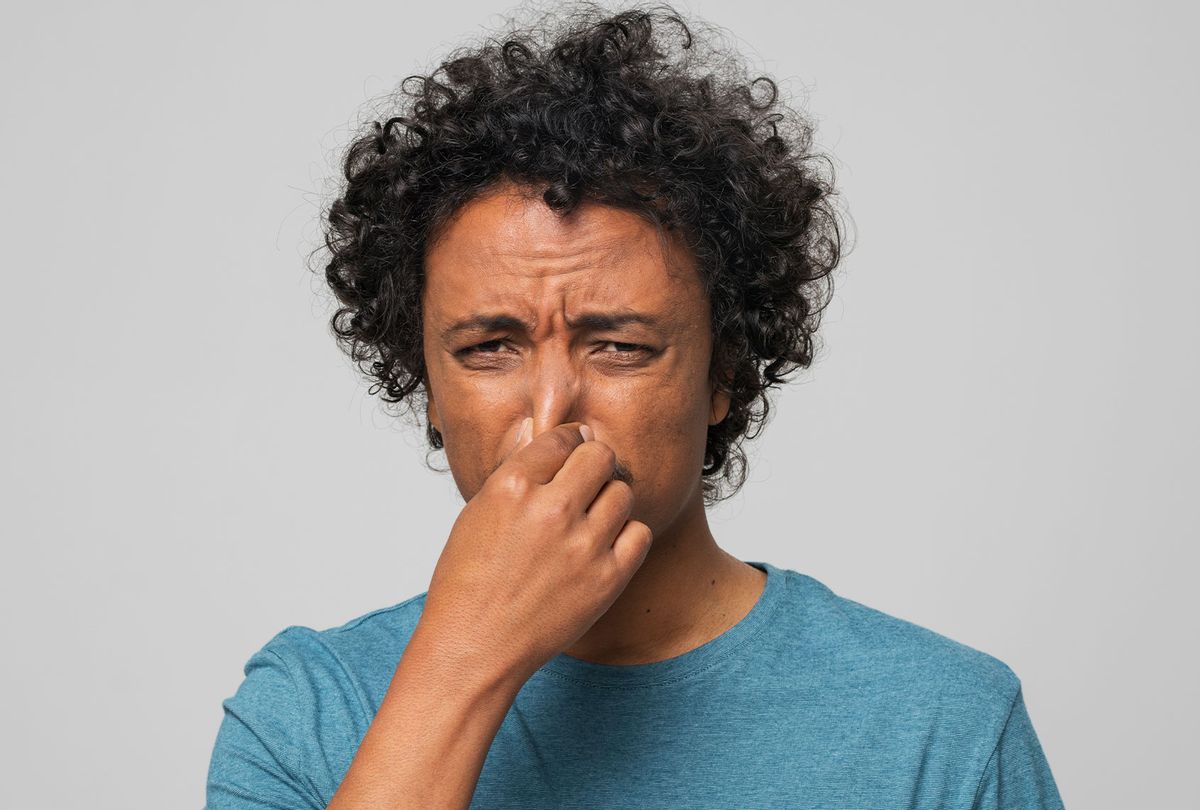At this point in the pandemic, it is well-known that loss of taste and smell is a common symptom of COVID-19. But a related, rarer and more frightening side effect occurs for some: when taste and smell is finally regained, their food doesn't taste like how they remember it. Rather, it tastes like literal garbage.
"Ever since I've regained my smelling and taste back, I have smelled this smell and tasted this taste that is disgusting and I cannot figure out what it is," explained one person in a story shared by the Covid Parosmia Support TikTok account. "I can no longer drink some of my favorite drinks or eat some of my favorite foods." The recovering COVID-19 sufferer said she had to stop using her favorite body wash because the smell was so bad.
Many other users on TikTok have taken to the platform to share their struggles with the health disorder called parosmia, which is when smells can become distorted. For those who have parosmia, things that once smelled pleasant — like body wash, say — might now smell repulsive.
Typically, parosmia is caused by an upper respiratory tract infection, head injury, sinus problem, exposure to toxins, or due to a neurological condition like Parkinson's disease. Now, it seems COVID-19 can be added to that list of causes.
"Parosmia can be caused by a number of things such as respiratory infections, seizures, and even brain tumors," said Richard Orlandi, MD, an ear, nose, and throat physician and professor in the Department of Surgery at University of Utah Health. "We've noticed since the pandemic more COVID-recovered patients now report this symptom."
While the disorder is generally temporary, some — like TikTok user HannahBaked — report that their struggle with parosmia lasts for many months.
"I put on my mask every time I use deodorant or perfume," HannahBaked said in a video to her followers. "I cannot do most meats."
She says she has been struggling with parosmia for 10 months.
Want more health and science stories in your inbox? Subscribe to Salon's weekly newsletter The Vulgar Scientist.
Dr. Amesh Adalja, a senior scholar at the Johns Hopkins Center, told Salon that it is unclear "how common parosmia is, but anosmia seems to be very common and these may get grouped together." Anosmia means a complete loss of smell and taste, which is quite common with COVID-19.
According to one systematic review published in June 2020, 41 percent of 8,438 people with COVID-19 reported losing their sense of smell. Few studies have been conducted specifically on parosmia and COVID-19, specifically. However, out of the research conducted on the topic, it does appear to be somewhat common. According to a May 2021 study surveying 268 patients with parosmia over the course of 7 months, 91 percent of the people reported an altered quality of life.
"The daily perception of parosmia was unpleasant for the majority of our patients, and was typically described as sewage, moldy socks, rotten eggs, citrus, and rotten meat" smells being constant, the aforementioned researchers of the May 2021 study wrote. "All patients could identify the triggering stimuli eliciting parosmia."
Participants reported that the parosmia lasted between 9 days and 6 months; the average duration of parosmia was 3.4 months.
Adalja said the cause of parosmia is likely similar to anosmia.
"It is likely the result of the same process that causes anosmia, which hasn't been fully elucidated but occurs either through direct viral invasion, immune system inflammation, or some combination of these two elements," Adalja said. "It can occur during initial infection as well."
Indeed, the precise way in which COVID-19 causes parosmia remains unknown. As Adalja alluded to, it is possible that the coronavirus damages the receptors and nerves responsible for our sense of smell. The origin could have to do with inflammation, too.
However, like many side effects of COVID-19, more research is needed to find definitive answers.
"Right now, so little is known about the long-term effects of COVID-19," Orlandi said. "All we really know is that the majority of patients do experience a return of their normal senses of taste and smell, but it's unclear if and how many patients will get fully back to normal."
For some, practicing a technique known as "small training" — which involves smelling the same group of scents for 20 seconds at a time — can help one recover from both anosmia and parosmia.



Shares